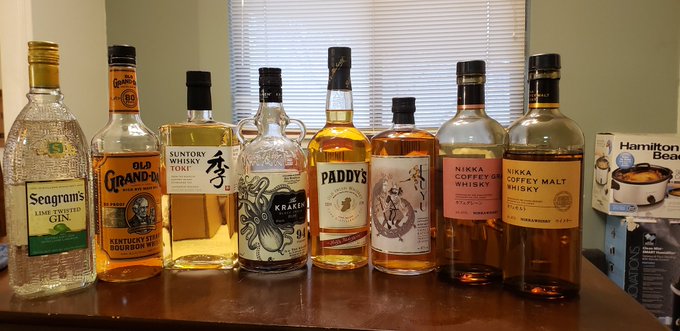COVID Stress, Fear. Boredom and Alcohol
"At times of lockdown during the COVID-19 pandemic, alcohol consumption can exacerbate health vulnerability, risk-taking behaviours, mental health issues and violence."
"Alcohol consumption is associated with a range of communicable and noncommunicable diseases and mental health disorders, which can make a person more vulnerable to COVID-19."
"In particular, alcohol compromises the body’s immune system and increases the risk of adverse health outcomes."
"[Governments should consider] restricting access [during the COVID-19 pandemic, complemented by] communicating with the public about the risks [and] maintaining and strengthening alcohol and drug services."
World Health Organization, Europe
"People turn to substances to cope with stress and trauma."
"These substances offer an immediate source of control. Having a drink or smoking can make you feel better right away."
"But long-term, as you get into addiction, then really the substance itself is driving that cycle of coping and stress rather than the outside environment itself."
Michael Chaiton, associate professor, Dalla Lana School of Public Health
 |
| A shopper wears a mask and gloves at the liquor store. Alcohol sales across Canada increased in March as people stocked up to stay home. (Evan Mitsui/CBC) |
Alcohol is viewed as a social good, as a relaxant, tempering moods during times of high tension. Self-congratulating videos began appearing on Instagram and other platforms as people were eager to demonstrate how they were handling the new rules around self-segregation, having virtual on-line cocktail hours with friends. And then there were the supposedly reliable heads-up claims that alcohol would kill the virus, leading people to load up their systems with alcohol in the hopes of forestalling infection.
 |
Leading the World Health Organization to issue a six-page instruction on COVID-19 and alcohol consumption in the public interest: "Under no circumstances should you drink any type of alcoholic product as a means of preventing or treatment COVID-19 infection." Irrespective of which Canadians, in a reflection of what is occurring on a global scale, have taken to drinking more and more frequently since the implementation of social distancing.
One quarter of Canadians aged 35 to 54 and one-fifth aged 18 to 34 respond that they have increased their alcohol consumption, even as 10 percent over age 54 report drinking more frequently, according to a Nanos poll commissioned by the Canadian Centre on Substance Use and Addiction. Rita Notarandrea, CEO of the addiction centre, points out the obvious; that stress and anxiety can lead to an increase in substance use.
 |
"Disrupted routine may be accompanied by loneliness and anxiety about the current situation. With the possibility that people are stocking up and there is more alcohol in the home than usual, some might drink more than they typically do", added senior research and policy analyst at CCSA, Catherine Paradis.
Increased alcohol use has been recognized in many areas of the world, leaving some experts concerned that misinformation plays a role in the situation. "Consuming alcohol will not destroy the virus", the WHO urges on the public. It also addresses misconceptions about drinking and stress relief, pointing out that alcohol is known to amplify symptoms of anxiety, depression and other mental disorders.
And underlying the twin concerns of contracting COVID, and seeking relief from the pressures of stress and worry, a new survey shows half of Canadians who participated reporting their mental health situation has been exacerbated as a result of the global pandemic. The Angus Reid Institute set out to illuminate how economic uncertainty and social distancing measures caused by the pandemic affect the psychological balance of Canadians.
When asked to describe their primary emotions in recent weeks, 44 percent of respondents stated they are worried, 41 percent that they're anxious, and 30 percent that they are quite simply bored.
 |
| A liquor store lineup is 50 people deep in downtown Toronto as shoppers await their turn, CBC |
Labels: Alcohol Consumption, Depression, Fear, Global Pandemic, Infection, Stress

0 Comments:
Post a Comment
<< Home